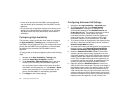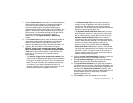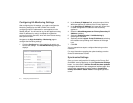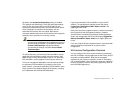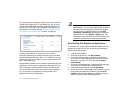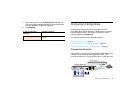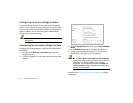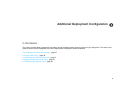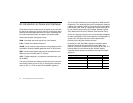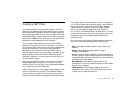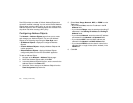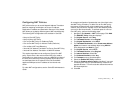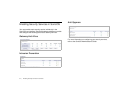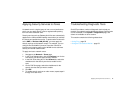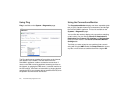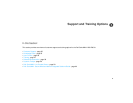
47 | An Introduction to Zones and Interfaces
An Introduction to Zones and Interfaces
Zones split a network infrastructure into logical areas, each with
its own set of usage rules, security services, and policies. Most
networks include multiple definitions for zones, including those
for trusted, untrusted, public, encrypted, and wireless traffic.
Some basic (default) zone types include:
WAN—Untrusted resources outside your local network
LAN—Trusted local network resources
WLAN—Local wireless network resources originating from Dell
SonicWALL wireless enabled appliances such as SonicPoints.
DMZ—Local network assets that must be accessible from the
WAN zone (such as Web and FTP servers)
VPN—Trusted endpoints in an otherwise untrusted zone, such
as the WAN
The security features and settings configured for the zones are
enforced by binding a zone to one or more physical interfaces
(such as, X0, X1, or X2) on the Dell SonicWALL appliance.
The X1 and X0 interfaces are preconfigured as WAN and LAN
respectively. The remaining ports can be configured to meet the
needs of your network, either by using basic zone types (WAN,
LAN, WLAN, DMZ, VPN) or configuring a custom zone type to
fit your network requirements (for example: Gaming Console
Zone, Wireless Printer Zone, Wireless Ticket Scanner Zone).
A Zone is a logical grouping of one or more interfaces designed
to make management, such as the definition and application of
access rules, a simpler and more intuitive process than
following a strict physical interface scheme.
By default, the Dell SonicWALL appliance’s stateful packet
inspection allows all communication from the LAN to the
Internet, and blocks all traffic from the Internet to the LAN. The
following behaviors are defined by the “Default” stateful
inspection packet access rule enabled in the Dell SonicWALL
appliance:
Originating Zone Destination Zone Action
LAN, WLAN WAN, DMZ Allow
DMZ WAN Allow
WAN DMZ Deny
WAN and DMZ LAN or WLAN Deny



